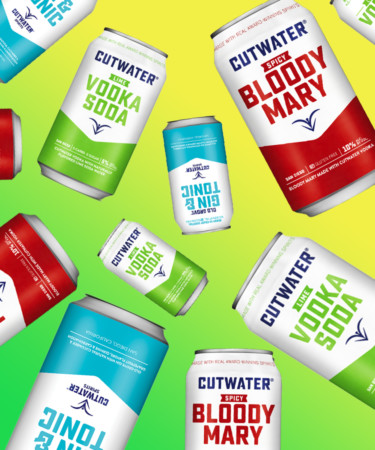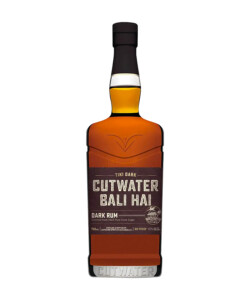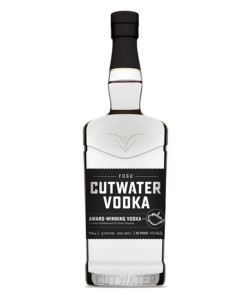Over the last five years, the explosion of canned cocktails has taken over the ready-to-drink beverage category. One instigator of the category’s recent success is Cutwater Spirits, which uses its own liquor in each product. Born as a side project in a brewery, Cutwater later broke off on its own and was later bought by Anheuser-Busch to capitalize on nationwide distribution and marketing. Its sales are reportedly up 640 percent since 2017.
In addition to its massive popularity with consumers, the brand is proving to win over industry critics as well. The company received a trio of medals at the recent L.A. Spirits Awards, including Best Ready-To-Drink Cocktail for its Orange Vodka Smash, Best Tequila for its Añejo Tequila, and Best Rum for its Three Sheets Cask Strength Rum.
Read ahead to find out nine things you should know about Cutwater Spirits.
-
It Was Born at Ballast
Before Cutwater Spirits pioneered the canned classic cocktail category, it was a small-time operation growing within Ballast Point brewery. The concept was the brainchild of Ballast’s then-head brewer Yuseff Cherney and founder Jack White. Together, they grew Cutwater to the point where it needed a separate distilling operation. In 2015, Constellation purchased Ballast Point, and as Cutwater — with Cherney as master distiller — moved to its new digs, it completely broke off from Ballast Point.
-
It Paved the Way in San Diego
The Cutwater distillery is based in San Diego and claims to be the first to operate there since Prohibition. Today, San Diego is home to more than a dozen craft distilleries.
-
It’s a Quadruple Threat
The distillery currently has offerings from four distinct categories: spirits, canned cocktails, frozen cocktail pops, and mixers. From herbal liqueurs to spicy Bloody Mary mix to ginger beer, you’d be hard pressed to find a cocktail recipe that Cutwater can’t help you create.
-
Consumers Really Like Cutwater’s Margaritas
Sales of Cutwater Tequila Margarita grew by 190 percent in 2020, prompting the rapid launch of three additional flavors. In February 2021, Mango Margarita hit the market, with Strawberry and Peach Margarita rolling out shortly after in April.
-
Not Every Cutwater Creation Is a Winner
While its Margs have been winners, the brand has also had its share of fails. It’s been previously reported that the distillery once experimented with plum schnapps made from local plums. However, it was discovered that plums don’t produce very much juice, and all that was yielded was a single bottle of schnapps.
-
Hard Alcohol With a Soft Side
During the Covid-19 pandemic, the distillery opened its doors to support hospitality and industry workers to offer socially distanced meal pickups. The initiative facilitated interactions between trade members — helping to support those looking for education or other work opportunities amid pandemic-fueled layoffs in the industry. In addition to supporting people in its industry, Cutwater donated 50,000 meals to the San Diego Food Bank during the pandemic. It also used a portion of its production facility to produce hand sanitizer, which the brand donated to local nonprofits.
-
Mexico Is the Distillery’s Home Away From Home
Most of the distillery’s offerings are made on-site in San Diego, but that’s not the case with its tequila. By law, tequila must come from Jalisco, Mexico. That’s why Cutwater sought out a partnership south of the border with the Orendain family. The family’s distilling facility produces Cutwater’s award-winning bianco, reposado, and añejo tequilas.
-
Supporting Pride
From July 8 through Sept. 30, 2021, the Cutwater Tasting Room and Kitchen in San Diego is offering its Pride Cocktail. One dollar from every purchase, plus $1 matched by Cutwater, is donated to The Center SD. Called Baby I Was Poured This Way, the cocktail includes Cutwater White Rum, toasted macadamia, coconut, blue Curaçao, lime, and a shimmering pea flower float.
-
Learn From the Master (Distiller)
The distiller and founder of Cutwater, Yuseff Cherney (who was previously head brewer at Ballast Point), also holds the role of lead instructor of UC San Diego’s Professional Certificate in Brewing program. The program, which can be completed in 18 to 24 months, offers academic and practical training for entry-level brewing professionals. Courses vary from brewery safety to food pairings to the origins and history of beer.


